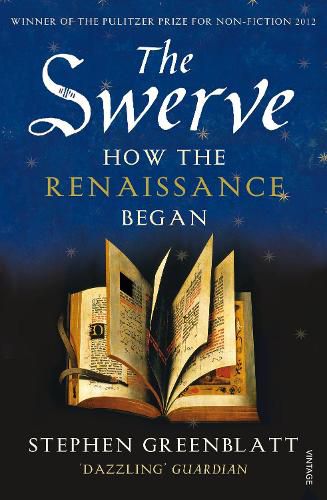Readings Newsletter
Become a Readings Member to make your shopping experience even easier.
Sign in or sign up for free!
You’re not far away from qualifying for FREE standard shipping within Australia
You’ve qualified for FREE standard shipping within Australia
The cart is loading…






Winner of the 2012 Pulitzer Prize for General\nNon-fiction.
\n
In the winter of 1417, a short, genial, cannily alert man in his\nlate thirties plucked a very old manuscript off a library shelf,\nsaw with excitement what he had discovered, and ordered that it be\ncopied. The man was Poggio Braccionlini, the greatest book hunter\nof the Renaissance. His discovery was the last surviving manuscript\nof an ancient Roman philosophical epic, On the Nature of Things by\nLucretius—a beautiful poem of the most dangerous ideas: that the\nuniverse functioned without the aid of gods, that religious fear\nwas damaging to human life, and that matter was made up of very\nsmall particles in eternal motion, colliding and swerving in new\ndirections.
\n
The copying and translation of this ancient book fueled the\nRenaissance, inspiring artists such as Botticelli and thinkers such\nas Giordano Bruno; shaped the thought of Galileo and Freud, Darwin\nand Einstein; and had a revolutionary influence on writers such as\nMontaigne and Shakespeare and even Thomas Jefferson.
\n\n
$9.00 standard shipping within Australia
FREE standard shipping within Australia for orders over $100.00
Express & International shipping calculated at checkout
Winner of the 2012 Pulitzer Prize for General\nNon-fiction.
\n
In the winter of 1417, a short, genial, cannily alert man in his\nlate thirties plucked a very old manuscript off a library shelf,\nsaw with excitement what he had discovered, and ordered that it be\ncopied. The man was Poggio Braccionlini, the greatest book hunter\nof the Renaissance. His discovery was the last surviving manuscript\nof an ancient Roman philosophical epic, On the Nature of Things by\nLucretius—a beautiful poem of the most dangerous ideas: that the\nuniverse functioned without the aid of gods, that religious fear\nwas damaging to human life, and that matter was made up of very\nsmall particles in eternal motion, colliding and swerving in new\ndirections.
\n
The copying and translation of this ancient book fueled the\nRenaissance, inspiring artists such as Botticelli and thinkers such\nas Giordano Bruno; shaped the thought of Galileo and Freud, Darwin\nand Einstein; and had a revolutionary influence on writers such as\nMontaigne and Shakespeare and even Thomas Jefferson.
\n\n